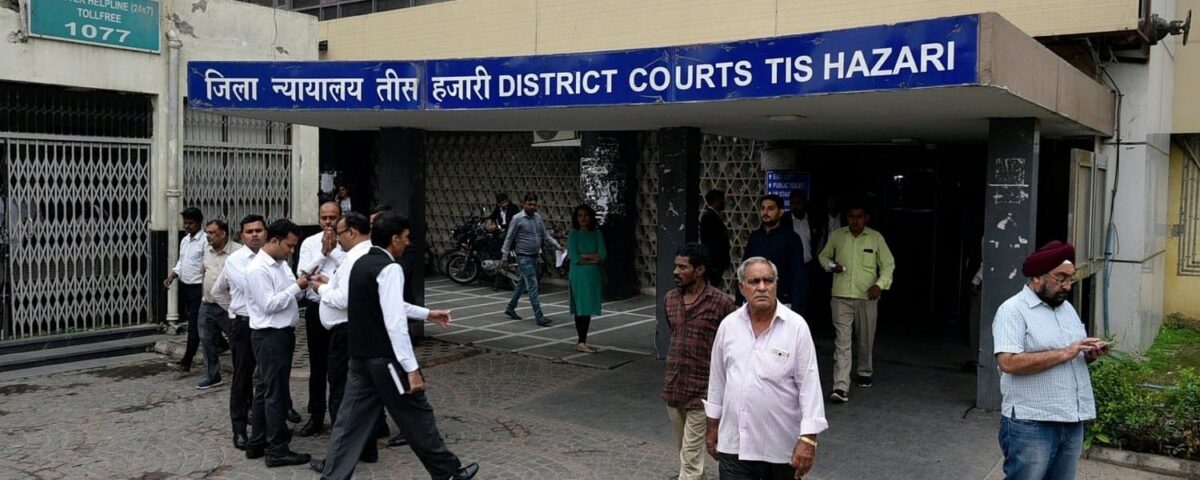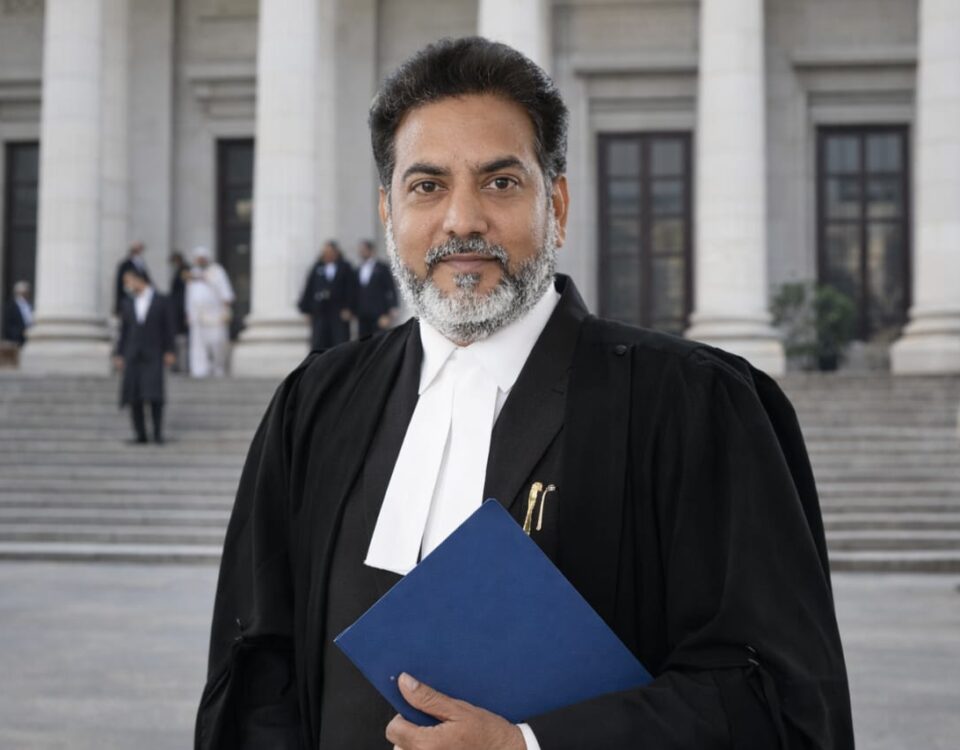- Top-rated Best Divorce Lawyer in India
- +91 9616166166
- Top Mutual Divorce Lawyer in India
Mutual Consent Divorce Lawyer in Tis Hazari Court Delhi

Best Divorce Lawyers in Delhi, Dwarka Court
August 18, 2025
Good Family Divorce Lawyer in Noida Court – Expert Legal Assistance
September 21, 2025Trusted Mutual Consent Divorce Lawyer in Tis Hazari Court, Delhi
Introduction
Marriage is often described as a sacred bond, but when circumstances make it impossible for two individuals to continue their lives together, divorce becomes a practical solution. In India, divorce law provides multiple routes for separation, including contested and mutual consent divorce. Among these, mutual consent divorce Lawyer Tis Hazari court delhi has gained prominence due to its relatively faster resolution, less emotional trauma, and reduced conflict.
The Tis Hazari Court in Delhi is one of the oldest and busiest district courts in the capital. It handles thousands of matrimonial cases every year, making it a hub for family law litigation. Within this framework, lawyers specializing in mutual consent divorce play a pivotal role in helping couples navigate the legal process smoothly and with dignity.
This article explores the process of mutual consent divorce, the role of lawyers in Tis Hazari Court, the benefits of seeking expert legal assistance, challenges involved, and practical tips for individuals considering this path.
What is Mutual Consent Divorce?
Mutual consent divorce is provided under Section 13B of the Hindu Marriage Act, 1955. It allows both spouses to dissolve their marriage jointly if they agree that living together has become impossible and that separation is the best course of action.
Key features include:
-
Joint Petition: Both parties file together.
-
Grounds: Irretrievable breakdown of marriage and inability to cohabit.
-
Cooling-off Period: A statutory period of six months is usually observed between the first and second motion (though the Supreme Court has allowed relaxation in certain cases).
-
Consent Throughout: Both spouses must maintain consent at every stage; if one withdraws, proceedings may halt.
This process is considered more amicable compared to contested divorces, which often involve allegations, counter-allegations, and long trials.
Importance of Tis Hazari Court in Matrimonial Matters
Tis Hazari Court is one of Delhi’s largest district courts and serves as a central point for matrimonial litigation in North, West, and Central Delhi. Some reasons it is significant for mutual consent divorce cases:
-
Dedicated Family Courts: Tis Hazari houses family courts specifically designated to handle divorce, custody, and maintenance cases.
-
Volume of Cases: The high number of matrimonial cases makes judges and lawyers in this jurisdiction highly experienced in such matters.
-
Accessibility: Located near Kashmiri Gate, it is well-connected through metro and road transport.
-
Legal Ecosystem: Hundreds of family law practitioners operate within Tis Hazari, offering clients a wide range of expertise.
Why Hire a Mutual Consent Divorce Lawyer?
Although mutual consent divorce appears straightforward, the process still involves legal documentation, procedural compliance, and courtroom representation. Here’s why hiring a specialized lawyer matters:
-
Drafting of Petition: The joint petition requires careful drafting, including settlement terms for alimony, child custody, maintenance, and division of property.
-
Avoiding Future Disputes: A lawyer ensures settlement terms are legally binding and enforceable.
-
Time Efficiency: Experienced lawyers know how to expedite hearings and file motions correctly to minimize delays.
-
Emotional Support: A divorce lawyer often doubles as a counselor, helping clients deal with the emotional stress of separation.
-
Legal Representation: Even in mutual cases, court appearances are mandatory. Having an advocate ensures all submissions and responses meet legal standards.
Step-by-Step Process of Mutual Consent Divorce at Tis Hazari Court
-
Pre-Filing Consultation
-
The couple consults a lawyer to understand implications of mutual consent divorce.
-
Discussions involve alimony, custody, property division, and liabilities.
-
-
Drafting and Filing of Joint Petition
-
A joint petition under Section 13B(1) is drafted.
-
It includes details of marriage, grounds of divorce, and settlement terms.
-
-
First Motion
-
Both spouses appear before the family court.
-
The court records statements and verifies free consent.
-
The first motion is then passed.
-
-
Cooling-off Period
-
A statutory six-month period is observed (though courts may waive it).
-
The couple may reconsider their decision during this period.
-
-
Second Motion
-
After the cooling-off period, the couple reappears before the court.
-
The court records final consent and examines settlement terms.
-
-
Final Decree
-
The judge grants a decree of divorce, legally dissolving the marriage.
-
Qualities of a Good Mutual Consent Divorce Lawyer
When searching for the right legal expert in Tis Hazari Court, clients should look for:
-
Experience: Familiarity with mutual consent divorce cases specifically.
-
Negotiation Skills: Ability to balance both parties’ interests.
-
Confidentiality: Maintaining the privacy of sensitive family matters.
-
Empathy: Providing not just legal guidance but also emotional reassurance.
-
Accessibility: Easy availability for consultations and court dates.
-
Reputation in Court: Respect among peers and judges often results in smoother proceedings.
Challenges in Mutual Consent Divorce
While mutual consent divorce is designed to be smooth, challenges may still arise:
-
Withdrawal of Consent: Either spouse may change their mind before the second motion.
-
Child Custody Disputes: Even if mutual, disagreements on visitation and custody can delay proceedings.
-
Alimony and Maintenance: Negotiating financial settlements can be difficult.
-
Property Division: Shared assets often create complexities.
-
Procedural Delays: Court schedules and administrative processes may prolong the case.
Role of Lawyers in Overcoming Challenges
Specialized divorce lawyers at Tis Hazari Court address these challenges effectively by:
-
Drafting airtight settlement agreements.
-
Facilitating mediation sessions to resolve disputes.
-
Filing waiver applications for the cooling-off period.
-
Ensuring compliance with all procedural requirements.
-
Protecting clients from unexpected legal complications.
Cost of Mutual Consent Divorce in Delhi
The cost of mutual consent divorce at Tis Hazari Court varies depending on:
-
Complexity of settlement terms.
-
Number of hearings required.
-
Lawyer’s experience and reputation.
On average, professional fees range between ₹30,000 to ₹1,00,000 for the complete process. Court fees are nominal compared to professional charges.
Frequently Asked Questions (FAQs)
Q1. How long does mutual consent divorce take at Tis Hazari Court?
Generally 6–18 months, depending on waiver of cooling-off period and court schedule.
Q2. Can the cooling-off period be waived?
Yes. Courts may waive it if reconciliation is impossible and settlement is complete.
Q3. Is physical appearance mandatory?
Both parties usually must appear in person, though video conferencing may be allowed in exceptional cases.
Q4. What if one spouse changes their mind after the first motion?
The process halts, and the case cannot proceed without mutual consent.
Q5. Can foreign citizens file mutual consent divorce in Tis Hazari Court?
Yes, provided marriage was solemnized in India or both spouses reside within the court’s jurisdiction.
Practical Tips for Couples Seeking Mutual Consent Divorce
-
Discuss Settlement Clearly: Agree on custody, finances, and property before filing.
-
Choose the Right Lawyer: Experience in mutual consent divorce cases ensures efficiency.
-
Maintain Communication: Transparent dialogue prevents last-minute disputes.
-
Stay Prepared for Court: Carry original documents—marriage certificate, ID proof, photographs, and settlement agreements.
-
Prioritize Children: Custody and maintenance should focus on the child’s welfare above all.
Why Tis Hazari Court is a Preferred Venue
-
Specialized Judges: Experienced in handling matrimonial disputes.
-
Efficient Legal Community: Many lawyers specialize in family law.
-
Accessibility: Easy to reach from across Delhi and NCR.
-
Reputation: Long-standing credibility as Delhi’s primary matrimonial court.
Conclusion
Mutual consent divorce represents a compassionate and efficient legal path for couples who have mutually agreed to separate. While the process is designed to be less adversarial than contested divorce, it still demands careful legal navigation to ensure settlements are fair, enforceable, and recognized by the court.
At Tis Hazari Court, Delhi, mutual consent divorce lawyers provide the expertise, experience, and emotional balance required to make this transition smooth. From drafting petitions to ensuring compliance with statutory requirements, these professionals play a crucial role in helping couples close one chapter of their lives with dignity and fairness.
For anyone considering separation in Delhi, engaging a specialized mutual consent divorce lawyer at Tis Hazari Court ensures not only legal protection but also peace of mind during one of life’s most difficult transitions.



